Gleeful: An Interview with Jane Lynch
A Volkswagen Golf. A lemon tree. A powder blue touch-tone phone. A live cabaret. It's the simple things in life that keep Jane Lynch happy.

Photo by Jake Bailey
Jane Lynch is gleeful. Truly, genuinely gleeful. About a phone.
“It’s a Touch Tone, it’s powder blue, and it’s just beautiful,” she exclaims. “I paid $200 for it. It’s a phone that the phone company would have given you for free back in 1973. And this is the first time I’ve used it.”
Lynch had been a familiar face for years on TV in the ’90s, appearing on countless television programs, but it was Christopher Guest’s uproarious 2000 mockumentary, Best in Show, that truly elevated her brand. She played no-nonsense lesbian dog trainer Christy Cummings, who embarks on a romance with her employer, portrayed by another up-and-comer at the time, Jennifer Coolidge.
Nine years later, Lynch would land the role of a lifetime — as high school coach and all-around glee club nemesis Sue Sylvester on Ryan Murphy’s groundbreaking musical series, Glee. Lynch’s portrayal — assertive, commanding, vastly entertaining, and vulnerable when needed — snagged her both an Emmy and a Golden Globe. In 2011, The New York Times Magazine featured her as part of a cover story entitled, “Eight Actors Who Turn Television into Art.”
Lynch is modest about her considerable talents. She just enjoys what she’s doing, especially if it involves making others laugh.
“I like to be tickled and I like to laugh and I always like to look for what will make something funnier,” she says. “And I mean in every aspect of my life. I have friends where all we do is sit around and try to make something funnier. That’s just kind of how I exist. I find any other existence drab and boring and lifeless and without any color.”
It’s hard to pinpoint when Lynch publicly acknowledged her sexuality, although articles online suggest as early as 2010. She widely credits Ellen DeGeneres as the trailblazer who made the terrain safe for other actors to be open about their sexuality.
But along with openness — and celebrity — comes scrutiny. Lynch married clinical psychologist Lara Embry in 2010, only to divorce in October 2014. It’s still a sore spot for Lynch, one she clearly prefers to keep private. She’s frank and concise about her feelings on the subject, and during a 45-minute phone conversation, it’s the only time she stops laughing and grows audibly strained.
With Glee out of production, ending a successful six-year run, Lynch is searching for her next big project. Meanwhile, she’s casually touring the country with a cabaret show, See Jane Sing!, which she’ll bring to The Birchmere in Alexandria on Tuesday and Wednesday, March 24 and 25.
“It’s me and Kate Flannery from The Office,” says Lynch. “I have a five-piece band — an amazing quintet — and we sing these obscure standards, and some beautiful three-part harmonies, because my friend Tim Davis — the vocal arranger on Glee — also joins us.”
At the moment, however, Lynch is content to lounge on her bed, on her new powder-blue phone, Lhasa Apso by her side, and talk about her career, her coming out, her first kiss, and the many, many things that make her, well… gleeful.
METRO WEEKLY: What about your early life led you to the career you’re in now?
JANE LYNCH: I don’t think there was anything in my early life that you could connect the dots and go, “Well, of course, it’s logical she’d be an actress.” I was born with a desire that revealed itself as I got older. I grew up in a suburb of Chicago, and there was not much there to inspire any kind of artistic thoughts or creation. Nonetheless, and in spite of that, I always wanted to create, I always wanted to act, I loved singing, I loved performing. And maybe the fact that I didn’t get much nurturing in that way made me seek it.
MW: Your parents weren’t a guiding force?
LYNCH: My parents loved each other very much, which was, I realized, a rarity. They were partners and we were all on the same team. They loved music, they loved musicals, they would play musicals and they loved to sing, but they weren’t in the business.
I went to the local high school and did plays and stuff like that, but my being an actress was something that made them cock their heads and go, “What? You can’t do that.” In fact, my mother famously said, “You can’t always get what you want.” I also think the Rolling Stones famously said that. I remember being very upset. Years later, my mother said, “Oh, I regret ever saying that to you.” It is kind of a horrible thing to tell a child. [Laughs.]
MW: Are they still with us, may I ask?
LYNCH: No, they both passed. My mother died a year and a half ago, and my dad, about 10 years ago.
MW: At least they got to see your success.
LYNCH: They did. Especially my mother. She got to see Glee. She got to see that I won an Emmy and a Golden Globe. I don’t think she saw Hollywood Game Night — I think she had passed by then — but yeah, she got to see a lot. My dad died right after A Mighty Wind came out. I think that was the last thing he saw. That was good for him to see, especially since we loved music so much in my family. He loved those kind of vocal arrangements.
MW: At some point, you realized “I’m not straight.” When did that happen?
LYNCH: I think the biggest thing I realized was that I didn’t want to kiss a boy. That’s when I knew there was something different, and I did want to kiss a girl.
I didn’t even know the word “gay,” and when I first heard it I was about 13 or 14 and thought, “Oh, my goodness, I have the girl version of that.” It really felt like it was a disease, that it was like a diagnosis. In fact, it was a diagnosis at that time. It was classified as a mental illness, a mental aberration.
MW: Do you remember what it was like the first time you kissed a girl?
LYNCH: I do, yes. The woman I kissed — and she was a woman — said “I feel like we opened up Pandora’s Box.” And that’s exactly what happened. I was like, “Ohhhh, that’s what everybody writes songs about. This is what people write poetry about, this is what happens to people in movies and in books.” I didn’t get it before.
MW: When was this?
LYNCH: It would have been the ’70s.
MW: How did you feel after it happened?
LYNCH: It was one of those things where I said I will never tell anybody about this — and I didn’t until I was about 21 years old, when I had my first encounter that turned sexual. I didn’t tell my parents until I was 30. I think it was clear that had I told them when I was 18, it would have been a completely different thing than when I was 31. Because by then things were already starting to change, socially. People were coming out of the closet. My mother worked for a man who never never professed to be gay but you knew he was. And she loved him very much, so when I came out, they were kind of surprised, but not.
MW: How did you come out to them?
LYNCH: I sent them a letter. I was living out here in Los Angeles and told them I was distant from them and I didn’t want that to continue, and one of the reasons was that I felt that I couldn’t tell them this thing. I told them — and they were wonderful about it. They called me, and it was a very loving, wonderful thing. They said, “Of course we’re not going to throw you away.” Which was a huge relief to me.
It was everything — I was going to say “I hoped it would be,” but I really didn’t have any faith that it would be that, because I had too much internalized shame. They really helped me. Their response really lifted me.
MW: The breadth of your career is extraordinary. Prior to Glee, you showed up on countless popular sitcoms and television series. Cybill, Third Rock from the Sun, Gilmore Girls, Frasier, Dawson’s Creek. This is all pre-Glee fame. What’s it like to enter these sets and be part of these shows for a moment?
LYNCH: Well, the first thing you feel is “Oh, I wish I could stay. I wish I was one of those who gets to come every week.” I was making a fine living doing what I was doing, but I would always wish I could be the person who got to stay. That being said, there’s something really fun about coming into a new place and getting to know a whole new group of people and doing my absolute best, maybe giving people something they didn’t even know that they were looking for, and walking away having done a job well done.
And you don’t stick around. You just kind of come in, you show off for a week, and then you leave. There was something really nice about that. I must say that I wasn’t frustrated with my career by the time Glee came along. I had moments of like “Why I can’t have a regular gig?” or “Why can’t I be somebody who’s making this kind of money?” But for the most part, I really enjoyed that part of my career.
MW: Was there a sitcom or series you recall as being particularly enjoyable?
LYNCH: Let me think. My memory is so awful. Let me think, let me think. I loved doing Criminal Minds. I played a completely different character than I was usually cast as — a woman with schizophrenia. I was the mother of Matthew Gubler, and I loved doing that. I loved that set, loved the actors, loved Matthew — he’s so great. And I loved doing sitcoms, I loved doing the live multi-camera things. Two and a Half Men — I had an arc on that. That was so much fun to do. It was such great writing. Every time I got a call from them, it was a thrill.
MW: I think of Best in Show as your big career turning point. It brought you into the mainstream.
LYNCH: Best in Show was definitely a huge leap — there was association with my name after that point. Jobs started becoming easier to get. I still auditioned, but I got a lot of offers, too. It’s so nice not to have to go through the “Dog and Pony Show” of trotting your cookies out for something. It’s kinda nice to be handed something. That’s just the best. I love that.

MW: When a show like Glee happens, turning you into a household name, you’ve reached a completely different level of stardom. Can you talk a little bit about how that changed your life?
LYNCH: I’m recognized now everywhere I go. There are certain things I can’t do anymore, like, I can’t go to Disneyland — and that’s okay — but for the most part it’s been all positive. I get “paparazzied” every now and again. And that’s okay. I’m not a big partygoer so the fact that I get invited to parties doesn’t really matter. I think one of the biggest things is that I have more money now, which is nice. I have a nice house which I love. That’s about it. I still drive a Volkswagen Golf.
MW: Really? A Golf?
LYNCH: Believe me, I drove some expensive cars before, and I love my little Golf. It’s fantastic.
MW: Volkswagen will be happy to hear that. Let’s talk Glee. You’re done shooting now?
LYNCH: We just finished on Saturday. The fact that it’s over is still very fresh and very sad and happy all at the same time. But the last 13 episodes have been just a joy. I think these were just some of the best episodes we’ve ever done. They really pulled the stops out.
MW: How do you feel about it all ending?
LYNCH: It’s one of those things that if they said, “Let’s do another season,” I’d be “Right on, let’s!” But I think it’s good for me creatively to move on. It’s good for me to exercise different muscles and try some different characters, step it up a bit in terms of producing and writing, which I’m doing. It’s time for the next phase, but I have to be pulled out by the powers that be, whether that’s the universe or the show ending, because I would have stuck with the safe, fun, known quantity for as long as they wanted me to stay with it.
MW: What will you miss most about your character, Sue Sylvester?
LYNCH: How she’s unabashed about her opinions. How she’s contrary to be contrary. She says the most outrageous things that nobody calls her on. Every once in awhile someone might roll their eyes and go, “That’s ridiculous,” but for the most part, she’s somebody who can throw kids under the lockers with no ramifications. She’ll call a meeting in the middle of the night and everybody shows up. She makes people wear ridiculous costumes and people just do it. They just do it! I love it. That’s Ian Brennan, the guy who created the show, and also created my character. Almost every line I utter was written from his pen.
MW: What are some things about the character you didn’t like?
LYNCH: That she took the low road many times. She did not follow her higher angels — which doesn’t mean I judge her on that at all. We all do this, and that’s what I love about her. She has the angel and the devil sitting on her shoulder at all times and she’s almost always choosing the devil.
She sees life as a battle, which I can’t say that I do. Playing this character has cured me of seeing the world in that way, as a place where you have to attack and defend because that’s what she’s about — she’s a warrior, and if there isn’t a battle she will create one. In that she’s your worst enemy and also your best advocate. And I think it was kind of a spiritual battleground for her and I think I exorcised that for myself. I don’t really see the world that way at all any more.
MW: What’s interesting to me about Glee was how gay positive it was. It dealt with being gay, at times, as simply a matter-of-fact.
LYNCH: That is exactly what they did and that’s the best thing about it. Not as being special, just as being matter-of-fact. Someone who’s gay is as normal as somebody who is six or seven feet tall. And that is I think the most important part of expunging shame within society. It’s a great, empowering show for kids to watch because there’s a kid for everybody in that show.
MW: Is this the Ryan Murphy effect?
LYNCH: Yeah. It is the Ryan Murphy effect. And it’s also the craziness of Ian Brennan, who just has a very beautifully skewed view of the world, so much like my own. He’s just better at writing it down than I could ever be. And then Brad Falchuk, the other guy of this great trifecta responsible for Glee who kind of brings the heart to it. He was the guy who wrote all those Burt and Kurt scenes — where the kid comes out to the dad. No one is better at writing that stuff than Brad.
MW: Murphy has really been at the forefront of bringing gays into the storyline and not treating them with kid gloves. The latest season of American Horror Story is a great example of that, with a gay person as a central villain. What’s it like working with him?
LYNCH: It’s great. He always tries to look for the most impactful moment. He’s an extreme guy. He loves to push as far as he can go — and then go a little further. I love that, because I don’t like being safe, either. I love doing crazy. The last thing he thinks about is pleasing GLAAD.
MW: Did you ever think we’d be seeing things like gay marriage in your lifetime?
LYNCH: No. No, no, no. I didn’t think so. My whole thing was you keep it quiet, you don’t let anybody know. So, in fact, I was not one of the people jumping up and down with excitement when people started talking about “Oh, now we should have marriage!” I was like, “Don’t do that! Don’t do that! Don’t make ’em mad!” I jumped on the bandwagon later, when it was safe. I wasn’t pioneering it.
MW: How do you feel about gay marriage?
LYNCH: You know what, at this point how I feel about it is that it’s a personal decision. But I think everybody should be able to do it. And I think it’s great that kids — like my nieces and nephews, young adults from their early to late 20s — judge people on a person-to-person basis, which was not the case for our generation.
MW: I agree. I think I’m still stuck in the mindset that I’m never gonna have kids, that it’s not for my generation. We were “trained” a different way, so to speak.
LYNCH: Yeah, there’s some untwisting you have to do. Definitely. I don’t think I’m twisted anymore — I don’t even know how to explain it, but what I want for myself personally is exactly where I’m at. I’m a happy single person.
MW: There’s an opportunity here to discuss something gays never really talk about. The fact is you were married and then you were divorced. We don’t often discuss the other side to it, gay divorce. Do you feel that’s an important consideration for gay people going into marriage?
LYNCH: For people period. You should really think about that decision. Really think about it. And you know, with any kind of marriage it’s possible that divorce can happen because 50 percent of most marriages end in divorce. Seventy-three percent of second marriages end in divorce, so it’s pretty amazing. I think you’ve really gotta know what you’re getting into. That’s all I will say on it.
MW: Of course, the majority of us don’t have to have to contend with TMZ and bloggers and the Internet looking at our every move when we do through something of a personal nature. Has society gone a little overboard intruding on celebrity lives?
LYNCH: I don’t care. I don’t read it, I don’t care about it, I don’t have a feeling one way or the other about it. It’s up to everybody, if they want to pick up that magazine or turn on that television show, that’s up to them. It doesn’t affect me at all.
MW: You choose to ignore it, then.
LYNCH: I don’t even actively ignore it. It’s not even in my realm of thought.
MW: The one thing that strikes me throughout this interview — you’re constantly laughing and you sound incredibly happy.
LYNCH: [Laughs.] What has made me really happy is I don’t do anything unless I want to, unless I have a desire to do it — which means I stay home a lot. But I’m giddy with joy when I stay home. I’m on my bed right now with my dogs and I couldn’t be happier. I’m looking out into my backyard and I’ve got a beautiful lemon tree and I couldn’t be happier. Couldn’t be happier.
MW: I want your life. Can we trade?
LYNCH: You can have it. You can have your own version of it. You just have to be uncompromising, and don’t do anything you don’t want to do. Follow your own path. I don’t care if you’re an actor or whatever. Do what you love, do what inspires you, and don’t waste your life on doing something you don’t love for one moment.
Jane Lynch stars in See Jane Sing! on Tuesday and Wednesday, March 24 and 25, at The Birchmere, 3701 Mount Vernon Ave., in Alexandria. Tickets are $89.50. Call 703-549-7500 or visit birchmere.com.
Support Metro Weekly’s Journalism
These are challenging times for news organizations. And yet it’s crucial we stay active and provide vital resources and information to both our local readers and the world. So won’t you please take a moment and consider supporting Metro Weekly with a membership? For as little as $5 a month, you can help ensure Metro Weekly magazine and MetroWeekly.com remain free, viable resources as we provide the best, most diverse, culturally-resonant LGBTQ coverage in both the D.C. region and around the world. Memberships come with exclusive perks and discounts, your own personal digital delivery of each week’s magazine (and an archive), access to our Member's Lounge when it launches this fall, and exclusive members-only items like Metro Weekly Membership Mugs and Tote Bags! Check out all our membership levels here and please join us today!





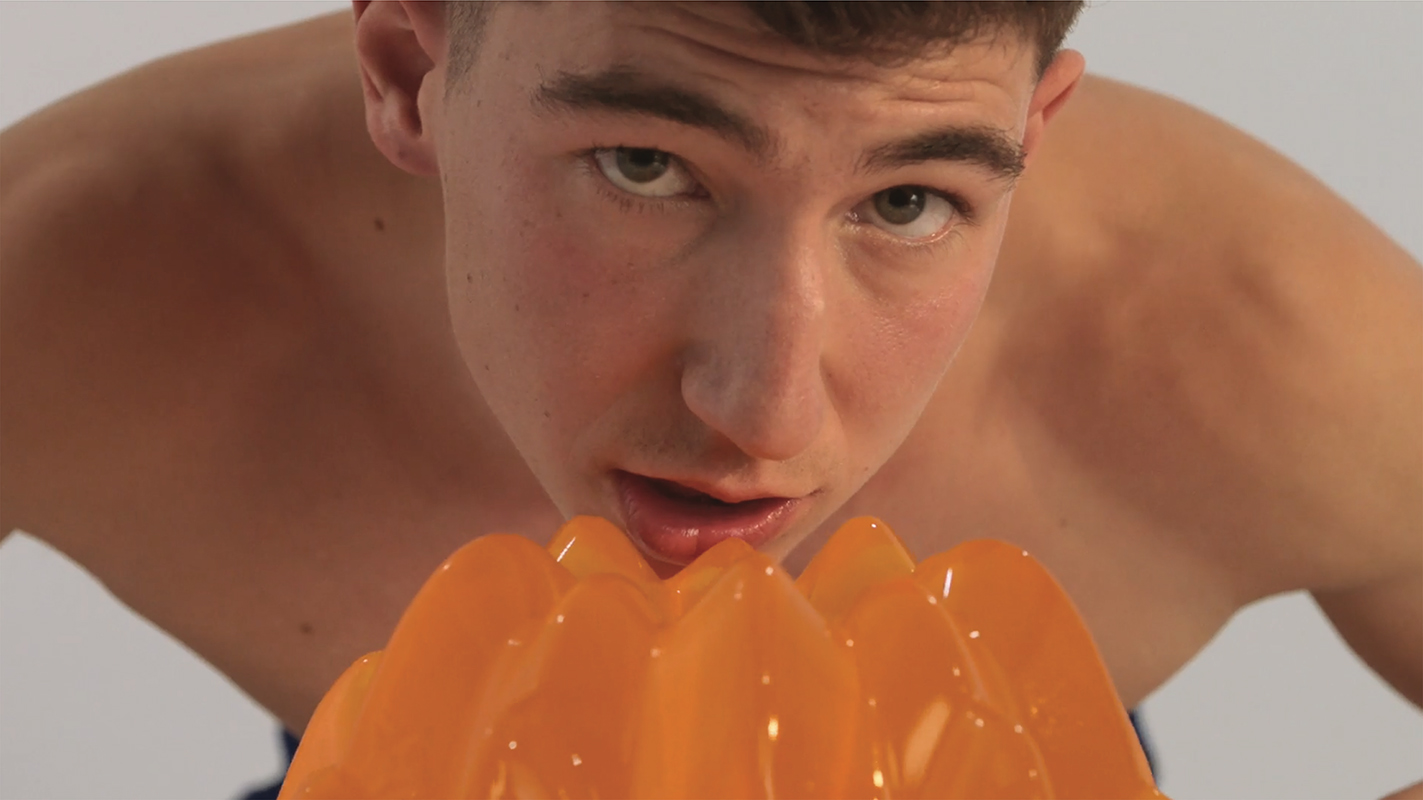
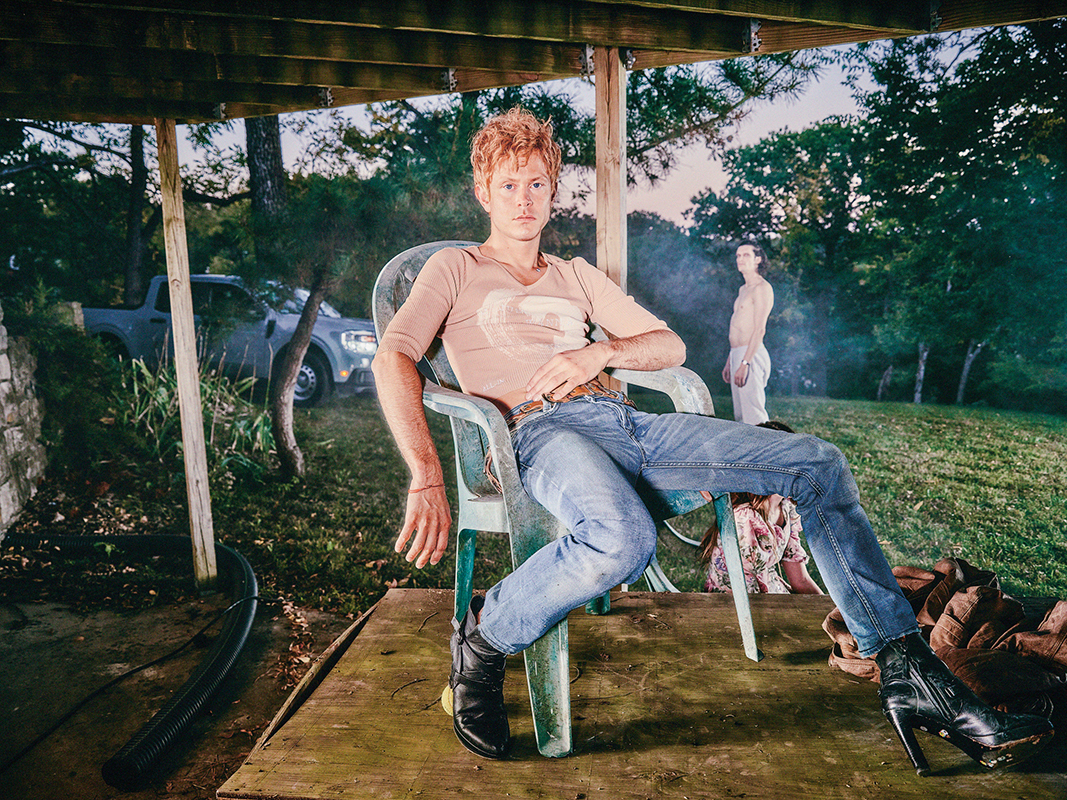














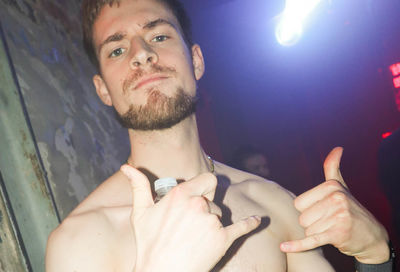
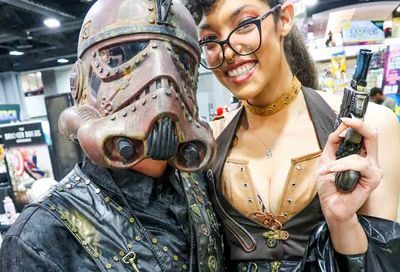
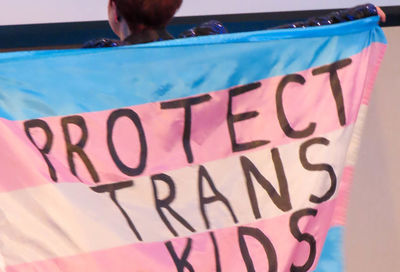
You must be logged in to post a comment.